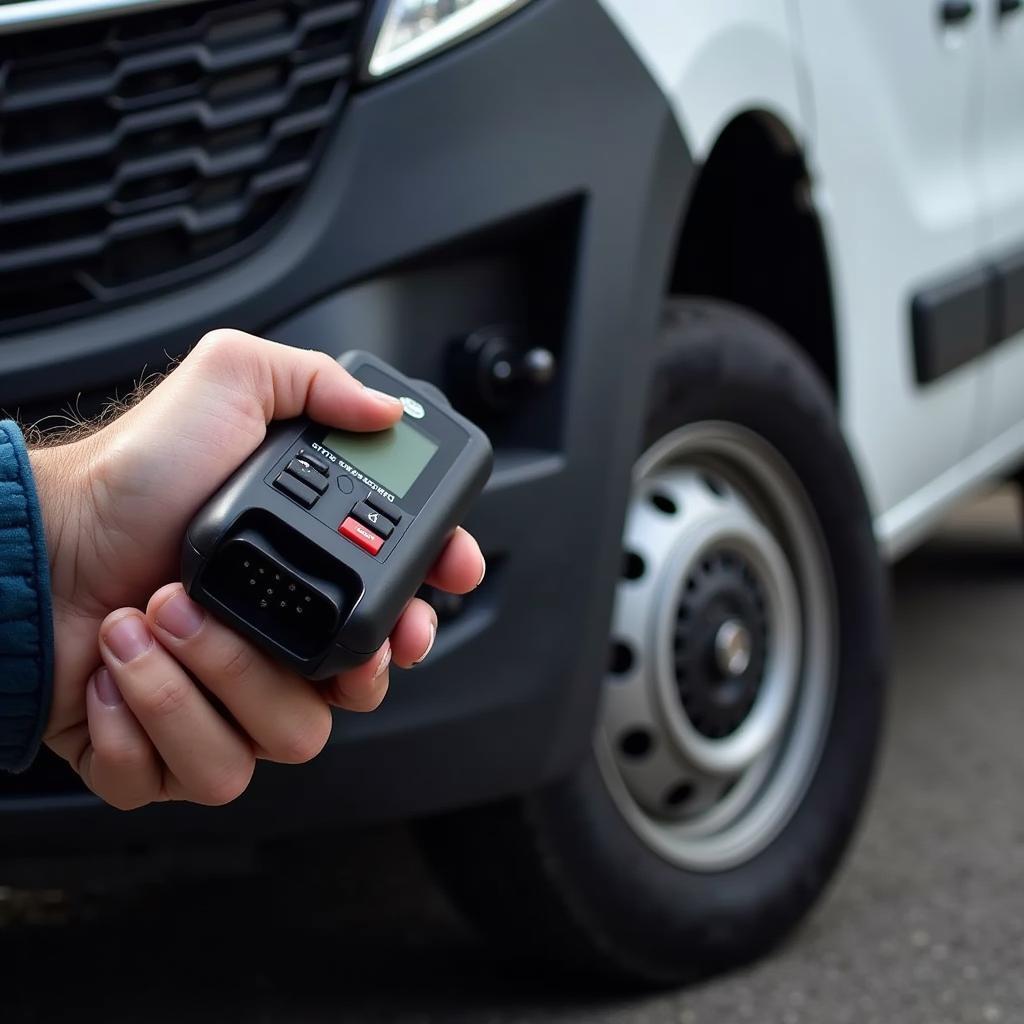Knowing if your car battery voltage is good or bad is crucial for avoiding unexpected breakdowns. A failing battery can lead to a host of problems, from dimming headlights to a complete no-start situation. This comprehensive guide will equip you with the knowledge to determine your car battery’s health and take the appropriate steps.
Understanding Car Battery Voltage
A fully charged car battery should typically measure around 12.6 volts or slightly higher. A voltage reading between 12.4 and 12.6 volts indicates a healthy battery with a good charge. However, if your car battery voltage drops below 12.4 volts, it’s a sign that it’s starting to discharge and requires attention. If you’re experiencing issues with your car battery constantly draining, check out our article on my car drains the battery.
What Factors Affect Car Battery Voltage?
Several factors can influence your car battery voltage. Temperature extremes, both hot and cold, can impact battery performance. Excessive use of electronic accessories, like the radio or headlights, can also drain the battery faster. Furthermore, a faulty alternator, which is responsible for recharging the battery while the engine is running, can prevent the battery from maintaining a proper charge. Understanding these factors helps you pinpoint the root cause of battery issues.
How to Test Your Car Battery Voltage
Testing your car battery voltage is a simple process using a multimeter. First, turn off all electrical accessories in your car, including the lights, radio, and air conditioning. Then, set your multimeter to the DC voltage setting. Connect the red probe of the multimeter to the positive (+) terminal of the battery and the black probe to the negative (-) terminal. The reading on the multimeter will indicate your car battery voltage. If your car won’t start and you suspect a dead battery, you might find our article about a car battery dead in garage helpful.
Interpreting the Voltage Readings
As mentioned earlier, a reading above 12.6 volts indicates a fully charged battery. A reading between 12.4 and 12.6 volts suggests a healthy battery with a decent charge. A voltage reading below 12.4 volts means your battery is discharging and might require charging or replacement. A voltage below 12.0 volts usually signifies a severely discharged or possibly damaged battery. For further insights, consider reading our article about the car battery sign on dashboard.
What if My Car Battery Voltage is Low?
If your car battery voltage is low, there are a few steps you can take. First, try jump-starting your car using jumper cables and another vehicle with a working battery. Once the car is running, the alternator should begin recharging the battery. However, if the battery continues to drain quickly, it may be a sign of a deeper issue, such as a faulty alternator or a parasitic drain. In this case, it’s best to consult a qualified mechanic for further diagnosis and repair. If you are looking for information about your key fob battery, check out our guide on what battery goes in a key fob.
Maintaining Your Car Battery
Proper car battery maintenance can significantly extend its lifespan. Regularly cleaning the battery terminals can prevent corrosion, which can interfere with the electrical connection. Limiting the use of electronic accessories when the engine is off can also help preserve battery life. Additionally, having your battery tested periodically by a mechanic can help identify potential problems before they become major issues. Especially if you drive a Mini Cooper and have noticed a battery warning light, our article on battery light mini cooper might be useful.
Conclusion
Understanding “car battery voltage good or bad” is essential for maintaining your vehicle’s reliability. Regularly checking your car battery voltage and addressing any issues promptly can help you avoid unexpected breakdowns and ensure your car starts every time.
FAQ
-
How often should I check my car battery voltage? It’s recommended to check your car battery voltage at least once a month, and more frequently during extreme weather conditions.
-
Can I test my car battery voltage without a multimeter? While a multimeter is the most accurate way to test car battery voltage, some auto parts stores offer free battery testing services.
-
How long does a car battery typically last? Car batteries typically last between 3 and 5 years, but this can vary depending on several factors, including climate and usage.
-
What are the signs of a bad car battery? Common signs of a bad car battery include slow engine cranking, dimming headlights, and difficulty starting the car, especially in cold weather.
-
Can a bad car battery damage other car components? Yes, a failing car battery can put extra strain on the alternator and other electrical components.
-
What should I do if my car battery won’t hold a charge? If your car battery won’t hold a charge, it likely needs to be replaced. Consult a mechanic to confirm the diagnosis.
-
How can I prevent my car battery from dying prematurely? Proper maintenance, such as cleaning the terminals and limiting the use of accessories when the engine is off, can help prevent premature battery failure.


